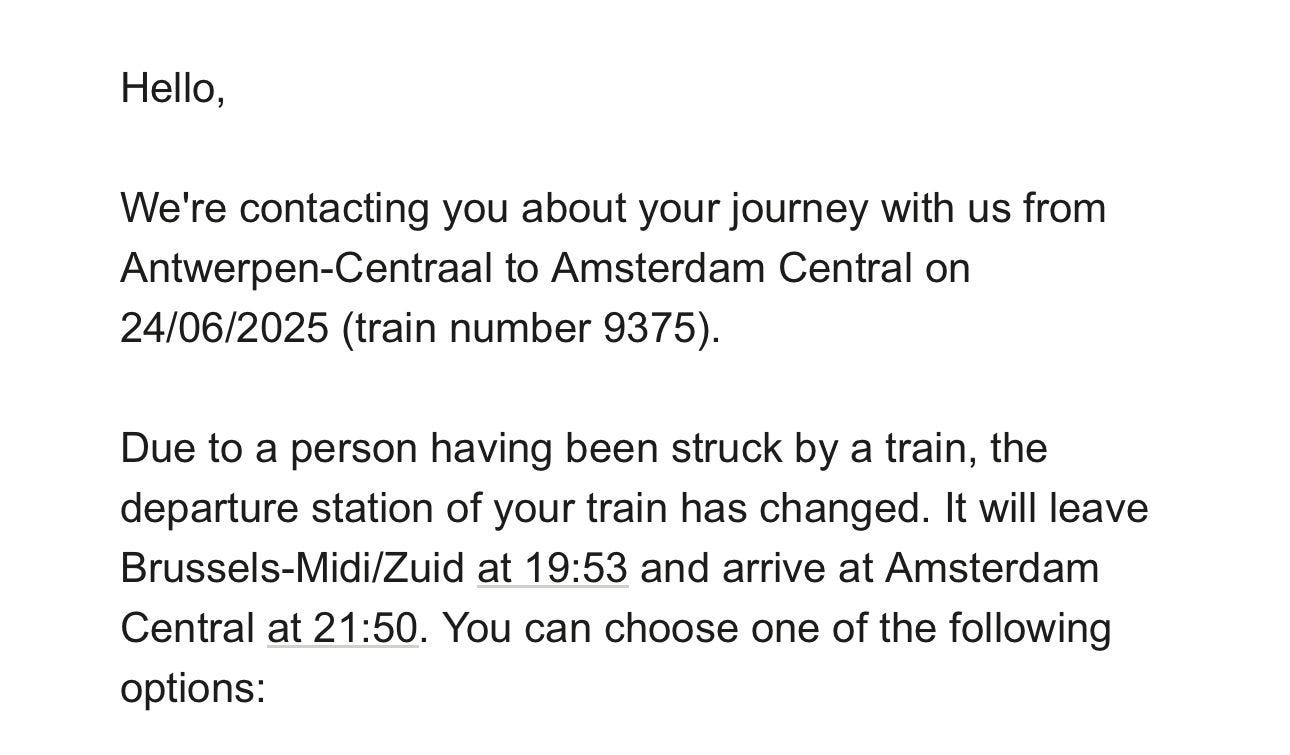Dear Readers,
My lovely Chinese-Canadian host for Dinner 130 sent me this harrowing message she received at 7:15pm on Tuesday [ BELOW] :
It was so that I could understand, in gruesome detail, that she was indeed not going to make it on time from Antwerp.
It was triggering, but it was also humbling—because my mind immediately spiraled into questioning whether this was a suicide.
A person had died.
And then I had to quickly police any narcissistic thoughts about how I felt.
A person had died.
Did they not want to be here? Was it an accident? Would my host—and the other passengers—have been told if it was a suicide? Did this person wake up this morning knowing they would be "struck by a train"? Were they neurodivergent? Were they in debt, or in trouble?
My mind raced. And raced. And raced. I was on the verge of spiraling until my best friend, with calm efficiency, reminded me not to internalize the information.
No good will come of it.
She was right.
I’ve come to realize that I will always find it deeply unnerving how life goes on even in the wake of devastation. Devastation of all kinds.
It’s something I’ve always found jarring. Confronting.
I even think about my own death—when it comes—and reconcile with the fact that not much will categorically changeafter I’m gone. Deadlines, mortgages, and dental appointments will still need to be fulfilled the next day. It’s incredibly humbling.
Or maybe someone will be seated at an inconspicuous wooden table, typing away on their laptop about my demise, the way I’m doing now about the person who was struck by a train.
Who knows.
What I do know is that dinner unfolded very differently that night. I ended up sharing a meal with a lovely couple from New Zealand at Sinck, a bar. My Chinese-Canadian host, whom I had originally intended to dine with, returned to Amsterdam much later than she had planned.
And somewhere, a family received the news that someone they loved—very, very dearly—had been “struck by a train.”
With lots of love,
Joseph




